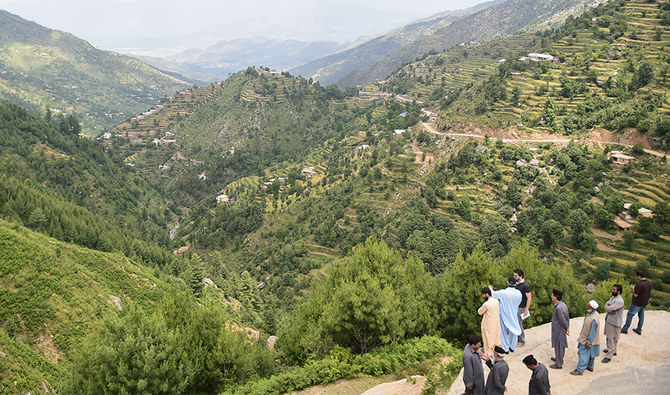PESHAWAR: Illegal logging, lack of regulation, and alleged complicity of local officials result in massive deforestation in Khyber Pakhtunkhwa (KP), with some tree species facing the threat of extinction, timber industry stakeholders and forestry experts warn.
“It is high time to implement the country’s forest laws in letter and spirit. Talking about the subject is like committing suicide because the timber mafia is very powerful,” said Mukaram Saba, secretary general of the timber association of Dargai, a sprawling timber market on the outskirts of Peshawar, the provincial capital of KP. He alleged that many forestry officials collude with wood smugglers.
However, KP Forest Minister Ishtiaq Urmar told Arab News that his government had zero tolerance for illegal logging and wood smuggling, and that the province’s forests were divided into three categories – reserved, protected and guzara (community-managed) forests – for better conservation.
Reserved forests belong to the state, and local communities have no rights to their management, conservation or revenue distribution. Protected forests also belong to the government, but local communities have certain rights to them. In guzara forests, local communities are recognized as key stakeholders in conservation and management and have specified rights, privileges and obligations with regard to forest resources.
“There may be some cases of timber smuggling but it is totally out of question that massive tree cutting and smuggling (is taking place) because we have strict checks in place,” Urmar said.
According to Pakistan’s Ministry of Climate Change report from 2015, the country has a high rate of deforestation and forest degradation, particularly in Gilgit-Baltistan and KP, as local communities depend upon forests for livelihood.
Dr. Sultan-i-Rome, a retired academic who wrote extensively on forest conservation, told Arab News that the growing population, burgeoning construction industry, and illegal logging coupled with smuggling were the main factors behind the province’s tree cover loss.
“The trees are not only cut for the benefit of the people living close to forests, but also by the timber mafia, which should be controlled,” he said, adding that the provincial government had its forest ordinance passed in 2002, but it has not been implemented.
Meanwhile, Pakistan’s national tree, the deodar cedar know locally as “dyar,” may disappear in the next few decades.
It is widely smuggled and sought-after, said Saba, the Dargai Timber Association’s secretary.
“A decade ago, dyar was sold for Rs1,500 per foot but now its price surges to Rs4,500 per foot,” he said.
Forestry expert, Dr. Lal Badshah, assistant professor at the University of Peshawar, told Arab News that the slowly growing tree species needs several hundred years to reach its full height.
“Dyar is durable, resistant to termite attacks, water, and not bendable. But if the trend of its cutting and smuggling continues, then we may lose the species in a few decades,” he said.
















